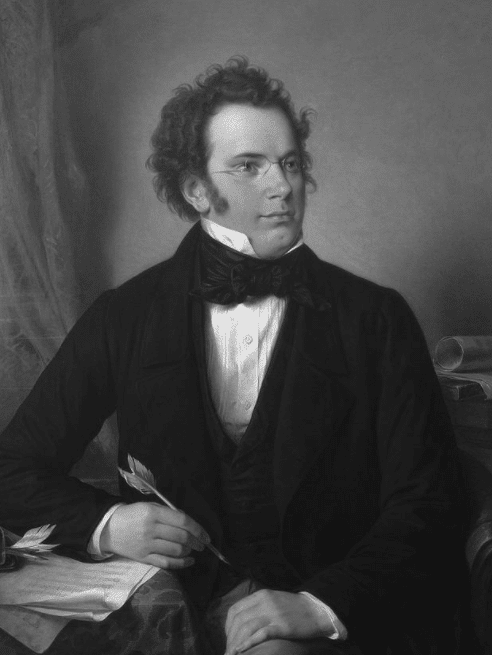
Franz Peter Schubert had a profound influence on the development of music during the late classical and early romantic periods. Despite his tragically short life, Schubert’s legacy continues to reverberate through the echoes of his enchanting symphonies, operas, and lieder compositions.
Early Life and Musical Prodigy
Born on January 31, 1797, in Himmelpfortgrund, Austria, Schubert was the offspring of a musical lineage. His father, Franz Theodor Florian Schubert, a well-known schoolmaster, and his brother, Ignaz, were his first music tutors. However, the budding prodigy soon outpaced their abilities, announcing his independence from their musical instruction at a tender age. His musical journey then took him to the Stadtkonvikt, a prestigious Imperial Court chapel choir school, which he joined with a scholarship at the age of ten.
At Stadtkonvikt, Schubert was introduced to the orchestral compositions of musical greats like Joseph Haydn, Wolfgang Amadeus Mozart, and Ludwig van Beethoven. His exposure to these musical geniuses, coupled with his innate talent and passion for music, set the stage for Schubert’s blossoming as a musical prodigy. His musical mentor, Antonio Salieri, a renowned composer of the time, hailed him as a “musical genius” and provided him with extensive training in music theory and composition.
Schubert: The Schoolmaster and The Composer
In 1814, Schubert was compelled to follow in his father’s footsteps and became an assistant at his father’s school, setting out on a dual career as a schoolmaster and composer. However, his true calling was music, evident in the multitude of compositions he created during his teaching tenure. In the year 1815, Schubert composed over 140 lieder, two symphonies, piano pieces, and liturgical choral works, showcasing an astonishing level of productivity that continues to marvel music historians.
Despite his teaching obligations, Schubert’s relentless creative pursuit led him to explore various genres, including chamber music, opera, and sacred music. Even the drudgery of teaching couldn’t thwart his musical aspirations, and he continued to compose prolifically during this period. His compositions began to gain recognition, and he started to perform in musical soirees, known as Schubertiads, which were popular amongst the Viennese elite.
Schubert and His Love Interest
In 1814, Schubert crossed paths with a young soprano named Therese Grob and was smitten by her. He composed several liturgical works for her and even aspired to marry her. However, the stringent marriage-consent law of 1815, which required a prospective groom to prove his financial ability to support a family, became a stumbling block in their relationship. Schubert was unable to marry Grob, and the composer never married or had children.
Illness and Financial Struggles
Around late 1822, Schubert’s life took a challenging turn as he was diagnosed with severe illness, believed to be syphilis. His deteriorating health and lack of steady income plunged him into deep financial hardships. Despite these adversities, Schubert’s creative spirit remained undeterred. He continued to pen a series of masterpieces, including the “Wanderer Fantasy” for piano, the “Die Schone Mullerin” song cycle, and the iconic Eighth Symphony.
The Final Years and Legacy
The last years of Schubert’s life were marked by deteriorating health and financial woes. Yet, his passion for music remained unwavering. He continued to compose, leaving behind an impressive collection of works, including piano duets, symphonies, and song cycles. Schubert’s only public concert, held on March 26, 1828, was a resounding success. However, his health worsened, and he passed away on November 19, 1828, at the young age of 31 in Vienna, Austria.
Despite his short life and the limited recognition he received during his lifetime, Schubert’s music has left an indelible mark on Western classical music. His extensive work, marked by original melodic and harmonic compositions, has inspired and influenced countless composers, including Robert Schumann, Johannes Brahms, and Hugo Wolf.
Schubert’s profound understanding of the lyrical beauty mirrored in his compositions has earned him the title of “the most poetic musician.” His unique approach to music, characterized by his ability to blend the classical and romantic elements seamlessly, has positioned him as a key figure in the evolution of music. His extensive body of work, his originality and his ability to evoke a spectrum of emotions through his music continue to make Schubert one of the most adored composers in the history of music.
